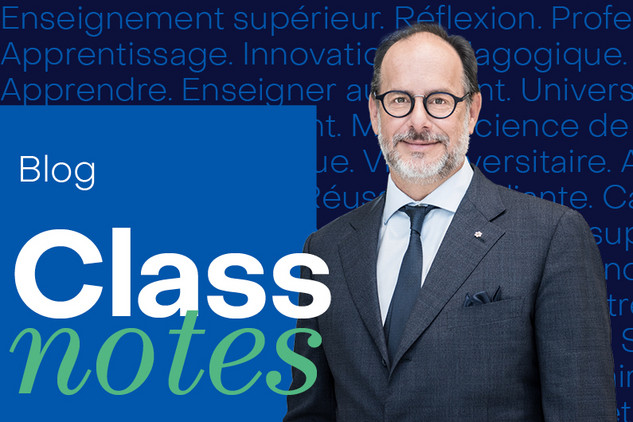Montreal, August 1985: 37 years ago, at the start of the academic year, I’m about to teach my first university course. Recruited as an assistant professor, I’d spent the summer preparing for this moment. I’d scoured my faculty library for everything it had on the core material that was the focus of the course. I now have mountains of notes. My syllabus is in order. I’m prepared. Yet I’m scared stiff.
I was teaching a first-year course and even if it might have been assumed I knew a bit more about the subject than my students, I couldn’t shake the fear of being caught out by an unexpected question. I was also afraid that I would run out of material, and that I’d have to end the class before the period was over, short of things to say. All of this led me to load more and more content into my lecture, more reading for my group, more topics to cover. I'd talk non-stop for the whole period. There'd be very few questions—phew!—and inevitably I’d come to the end of each session without having covered all the material and without being caught out—double phew!
With hindsight, you might say that I had it all wrong, or almost. I had expended all my energy filling my head with the course content, without spending a minute thinking about how to deliver that content so that my group would be able to assimilate it. My students were overwhelmed, buried alive under the volume of knowledge I was trying so hard (too hard) to impart. They dropped out one after the other and my course was a flop. It wasn’t for lack of motivation on my part, since I already understood that teaching was at the heart of the university’s mission. To be up to the task, I had devoted (too) many hours to preparing my course. No one had told me that “preparing a lecture” was not just about mastering the material.
Excellence in teaching involves questions I simply did not ask myself. How long can a speaker, even a talented one, hold forth before their passive audience begins to think about something else? How can you justify bringing students together in a class if it boils down to a one-way transfer of knowledge that can be acquired by reading a book or a website? How do you stimulate a discussion with a group of 75 people? How do you move students from knowledge to understanding to application, analysis, evaluation, and creation?
I could have found answers to these questions and many others by looking back at the best experiences that I’d had, as a student, in contact with passionate professors. Professors who treated me as a participant in the quest for knowledge, who organized lively debates and shared with the class their own questions about the issues of the day. Professors who didn’t hesitate to answer pointed questions with “I don’t know,” who strove to find solutions with the class without feeling threatened by uncertainty. Professors who suggested activities that encouraged active and collaborative learning. Professors who didn’t just rehash their lecture notes from previous years (easy to find even before the digital age) and who reinvented their course each year.
I could also have found answers to these questions from the expertise available from adult education guidelines. It exists and is easily accessible today, whether through UdeM’s Centre de pédagogie universitaire (Centre for University Pedagogy) or through conversation with groups sharing best pedagogical practices in a department or faculty.
Over the years, my teaching improved and, I believe, my students’ experience was more positive. I’m not an expert in pedagogy—most of us aren’t—but I’ve learned a great deal from my peers. All it took was for me to want to do better in the classroom and a world of possibilities opened up, and I channelled my energies in a different way, without putting in more hours.
When you stop for a moment to consider how you can make your own teaching more dynamic and enhance your students’ learning and experience, the hours spent in the classroom take on a different meaning. They are no longer an obligation or an interruption in a week devoted to research. They become a privileged moment, an encounter that feeds on the energy of youth and that, through the contagion effect, gives professors the exhilarating feeling of contributing to the vitality of their university. Long live the time spent in class!
Daniel Jutras
If you’d like to continue the conversation, please drop me a line.
